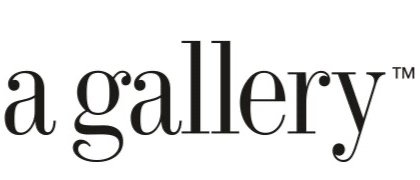Collecting art can be a deeply rewarding and enriching experience. Whether you are a seasoned art enthusiast or a novice, building an art collection can be a fulfilling journey. Here are some key steps to guide you on how to collect art:
Define Your Purpose: Before you start collecting art, consider why you want to do it. Are you looking to invest, decorate your space, support emerging artists, or explore different artistic movements? Understanding your purpose will help shape your collecting approach.
Educate Yourself: Take the time to learn about art history, different art movements, and various artists. Attend art exhibitions, visit galleries, and read art books and articles to broaden your knowledge and develop your taste.
Set a Budget: Determine how much you are willing to spend on art. Art collecting can range from affordable pieces to high-value investments, so it's essential to establish a budget that aligns with your financial situation and goals.
Explore Different Mediums and Styles: Art comes in various forms, including paintings, sculptures, photography, prints, and digital art. Be open to exploring different mediums and styles to find what resonates with you.
Visit Art Fairs and Exhibitions: Attend art fairs, galleries, and museums to immerse yourself in the art world. Networking with artists, curators, and fellow collectors can provide valuable insights and connections.
Start Small and Diverse: Begin by acquiring smaller, more affordable pieces. Focus on building a diverse collection, including works from different artists and periods. This approach allows you to explore your preferences and interests without committing to a specific style or artist right away.
Buy What You Love: The most crucial aspect of art collecting is to buy pieces that genuinely speak to you. Follow your intuition and choose artwork that evokes emotions and connects with your soul.
Support Emerging Artists: Consider supporting emerging artists whose work resonates with you. Not only can this be financially rewarding in the long run, but it also provides valuable encouragement and recognition to talented artists at the beginning of their careers.
Research the Artist and Provenance: When considering a piece, research the artist's background, achievements, and reputation in the art world. Additionally, inquire about the artwork's provenance (history of ownership) and authenticity.
Understand Art Pricing: Art pricing can be complex and influenced by factors such as the artist's reputation, the significance of the artwork, its condition, and market demand. Consult with art experts or appraisers to gain insights into fair pricing.
Consider Conservation and Maintenance: Artwork requires proper care and maintenance to retain its value and condition. If you invest in delicate pieces, be prepared to invest in conservation measures to preserve them.
Document Your Collection: Keep a detailed record of your art collection, including purchase dates, prices, artist information, and any relevant documentation. This helps track the growth and evolution of your collection.
Seek Professional Advice: If you plan to invest substantial sums in art or want to navigate the art market strategically, consider consulting with art advisors or consultants who can provide expertise and guidance.
Enjoy the Journey: Art collecting is not just about acquiring objects; it's about embracing the beauty and cultural significance of the pieces you bring into your life. Enjoy the journey of exploring, acquiring, and living with art.
Remember that art collecting is a personal endeavor, and there are no strict rules. Let your passion and curiosity guide you, and with time, you will build a collection that reflects your individual tastes and aspirations.
The collaboration with Sotheby´s was launched 2022. Sotheby´s is a welcome addition to be able to offer a complete range to refine your collection. Not only art, but also watches, jewelry, cars etc.
Sotheby´s is an international auction house with about a hundred experts for valuation and cataloging. In Europe, Sotheby's four houses are in London, Paris, Geneva and Cologne in order to provide the best possible options for sale or purchase.

